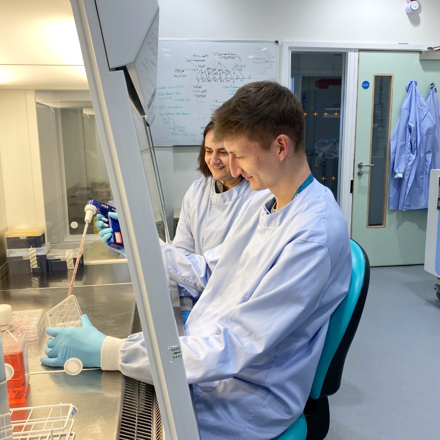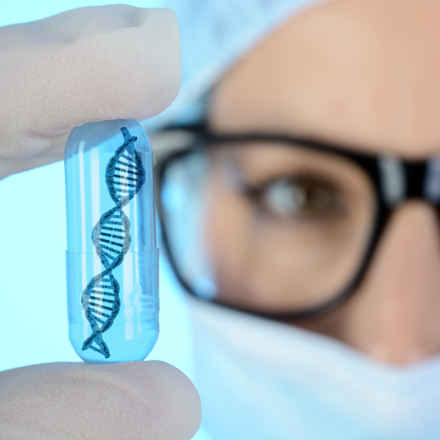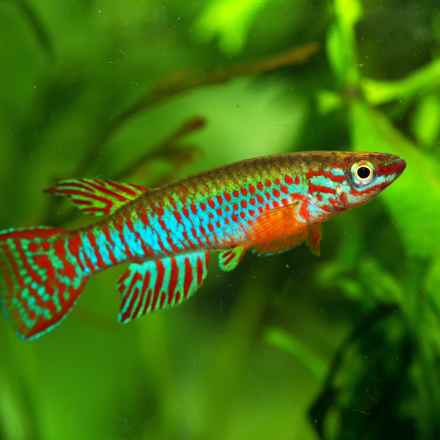
Our research projects
Since 1987 the Macular Society has invested around £10 million in over 100 research projects. Each year we invite applications for research grants, PhD studentships and seedcorn grants which are assessed by our Research Committee.
Research grants
Research grants are for projects of up to three years duration and up to £300,000, which covers everything from laboratory chemicals to salaries.
PhD studentships
A PhD studentship funds a student to undertake a three year research project. The student submits a thesis for qualification of the degree, which is the highest level of academic degree attainable.
Seedcorn projects
A seedcorn grant is funding of up to £25,000 to generate preliminary data to advance innovative and novel ideas.

Stopping the build-up of toxic waste in dry AMD
Research looking into the removal of toxic waste in cells of the retina that could lead to dry age-related macular degeneration (AMD).
Find out more

Wrong place, wrong time: protein delivery and macular disease
Investigating the movement of a protein called TIMP-3, which may be involved in AMD and Sorsby Fundus Dystrophy. To understand how the mutation leads to dysfunction and disease.
Find out more

Mutations in CFI gene: which are harmless or harmful?
Analysing mutations in the gene CFI which has been associated with AMD. This research aims to determine which may lead to AMD and which may not.
Find out more

Using gene therapy to investigate the pathways involved in AMD progression
This project will investigate the role of the ageing process in vision decline, with the aim of identifying novel targets for further research into potential therapies. It will use gene editing to create a variety of models of the retinal pigment epithelium (RPE), the cell layer that provides photoreceptors with nutrients, to examine what is happening at a molecular level in the progression of age-related macular degeneration.
Find out more

Multi-dimensional imaging in early AMD
This project will use new technology called ‘imaging mass cytometry’ to develop a means of looking into the several components involved in the switching on and off of the part of the immune system called the complement system.
Find out more

Studying retinal ageing in a rapidly ageing fish
Dr Nicole Noel’s research uses killifish to study how ageing affects the retina. By comparing fish and human data, this project reveals how macular degeneration develops and how it might one day be prevented.
Find out more
